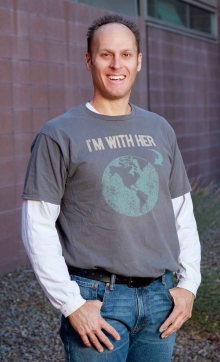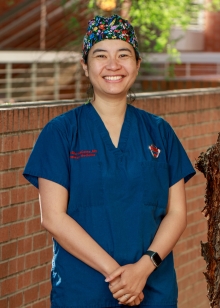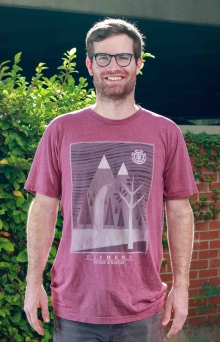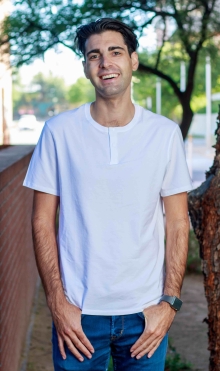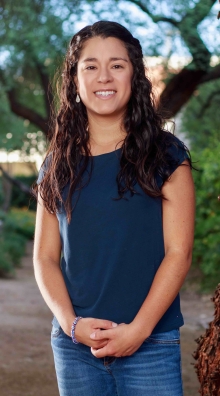Testimonials
Brian S. Drummond, MD, FAAEM
Diversity, equity, and inclusion means being open to understand everyone's story to appreciate the inherent bias and obstacles they face, while reflecting on our own conditioning and perspectives to improve our ability to see each other as equal human beings.
I have had to learn to feel comfortable discussing my conditioning and draw information from multiple voices to relearn our world history to understand where we are today. We as emergency medicine physicians become crusty, hardened, quick-judging creatures over our career and to balance that trend we must allow ourselves to become open to the concept that our biases get in the way of patient care. Appreciating and reacting to these biases permits us to become better people and physicians.
Elaine Situ-LaCasse, MD
Diversity, equity, and inclusion means meeting people where they are and educating ourselves on the systemic issues that create obstacles for others' success. After education, we must work together to dismantle those barriers together.
I came from a family without money. I slept on a mattress on a floor for several years. My parents did not speak English well, and I did not have the resources that many of my classmates had when I was in school. My obstacles have given me the drive needed to succeed and also to mentor those who are from the same socioeconomic class that I was from. It gives me perspective and allows me to connect with people on multiple levels: as someone who was poor, as someone whose parents couldn't help them as much, as a woman of color in a field that is mainly white males.
As emergency medicine physicians, we should be the face of the diverse population we serve, train, and teach. One of my medical student research interns stated that she didn't envision herself being in EM until she worked with me because she hadn't seen any Asian female EM physicians. We have to inspire the next generations of EM physicians.
Stefan Wheat, MD
Diversity, equity, and inclusion means working to make sure that everyone regardless of race, gender, sexual preference, age, disability, or other background feels welcome and able to share their voice and perspective equally. I continue to confront my own racist background as a white male who grew up in a predominantly white community.
Eric Lee, MD
To become more diverse and inclusive, we need less politics, less right vs left. I don't see one grand gesture that can solve this, nor is this something unique to EM. Our culture needs to be better about equality and inclusion. But the ED must be level territory, and the only bias should be "sickest first."
Rom Rahimian, MD, MPH - Chief Resident
I came to Tucson for the diverse community, excellent education, and opportunities to learn how to make change. By embracing diversity and inclusion, we have the vital opportunity to accept and learn from all people and cultures to innovate, grow, and improve patient care and relationships.
Natalia Nakajima, DO - Chief Resident
I was an immigrant who felt shame for being different when I was growing up. I was desperately trying to be someone I wasn’t, to be accepted rather than standing out for my curly hair, my dark skin or my language barrier. As female seeking out a career in medicine, I tried to be a bolder person and struggled to be perceived as a future doctor. Today as a physician, I still am in a daily battle to have that profession perceived of me. I also am someone working on addressing my inherent biases as well.
Emergency medicine can actually be a conduit to social change and I think people underestimate that. But in order to cause social change I think we need to be able to empathize with people of all socio-economic backgrounds and I think we can begin by being a diverse group of individuals working in the emergency department.
Veronica Khauv, MD
Why is diversity and inclusion important in residency training/emergency medicine?
As the eldest child of Chinese-Cambodian immigrant parents, I grew up having to interpret and advocate for my family in the hospital. I still remember how confusing, scary, and isolating it was to be in those situations. These experiences have helped me empathize with my patients and appreciate their unique story. There is so
Lindsey Vandergrift, MD
Why is diversity and inclusion important in residency training/emergency medicine?
Our role as emergency physicians is to help anyone who comes through our doors. It's our job to create a respectful environment for our patients of all backgrounds so that they feel safe seeking care here. It's also our job to attract a diverse group of staff and physicians; as researcher Thomas Laveist identified, patients experienced greater satisfaction with care from someone who was race-concordant, likely secondary to increased inherent levels of trust (Laveist et al. J Health Soc Behav 2002). This a
lso highlights the importance of creating trust with all of our patients, and especially those with whom we are different.
Holly Tallman, MD
How do you interact with the community we serve?
Throughout my medical education as well as in my career prior to medical school, I have been dedicated to promoting diversity, equity and inclusion in healthcare. As a medical student, I served as a mentor for fellow underrepresented minority students, providing guidance and support to help them navigate the challenges of the pre-med and medical school obstacles. Additionally, as an underrepresented person in medicine, I have incorporated anti-racist and equity practices into my own practice as a doctor, recognizing that these values are essential to providing high-quality care to all patients. Furthermore, my passion for social medicine has led me to seek out opportunities to work with underserved communities, including earning distinction for my medical school degree for my commitment to underserved persons and rural health. Through these experiences, I have gained a deeper understanding of the structural barriers that many patients face in accessing healthcare,
a
nd I am committed to addressing these disparities through increasing representation, advocacy and education.


